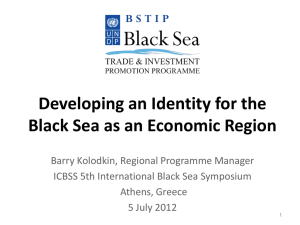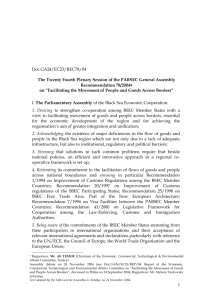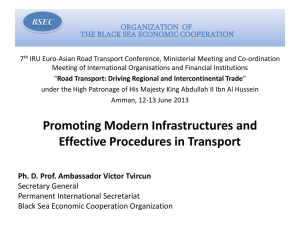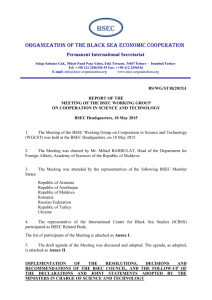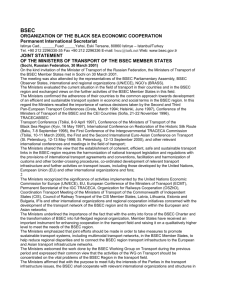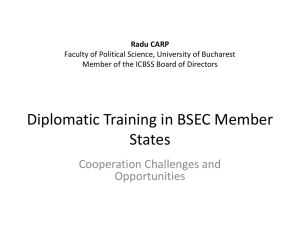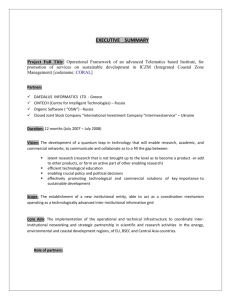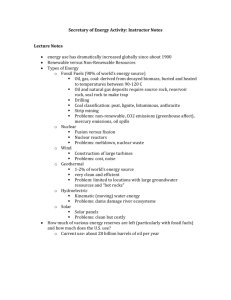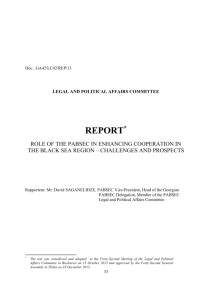BSEC secretary-general keen on regional progress
advertisement
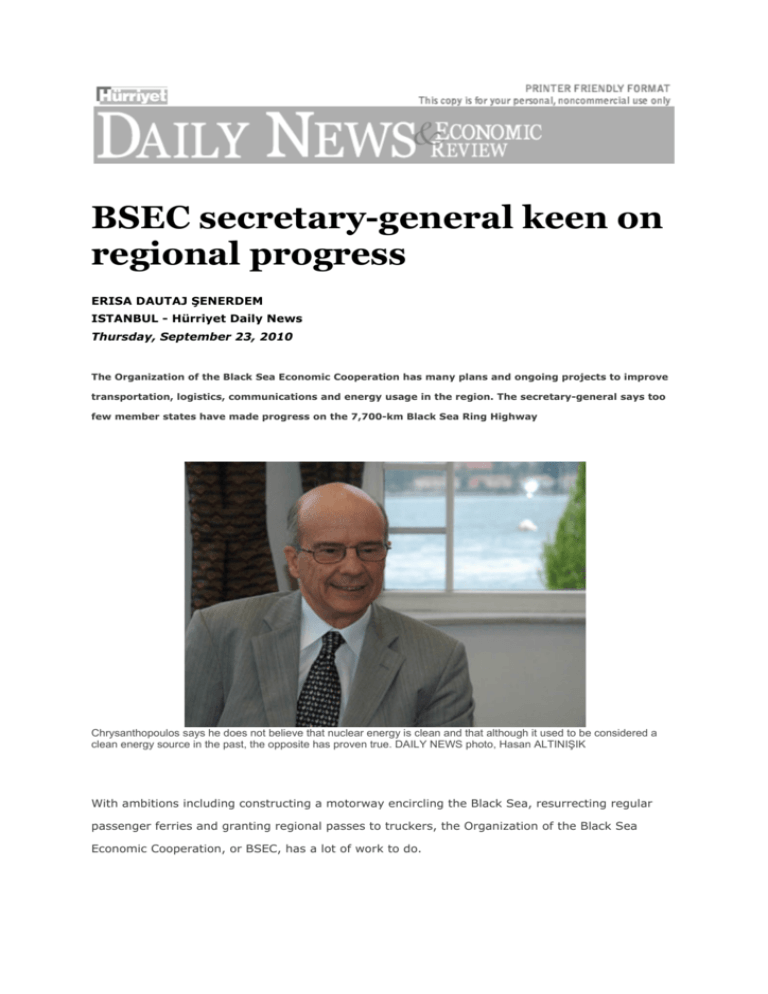
BSEC secretary-general keen on regional progress ERISA DAUTAJ ŞENERDEM ISTANBUL - Hürriyet Daily News Thursday, September 23, 2010 The Organization of the Black Sea Economic Cooperation has many plans and ongoing projects to improve transportation, logistics, communications and energy usage in the region. The secretary-general says too few member states have made progress on the 7,700-km Black Sea Ring Highway Chrysanthopoulos says he does not believe that nuclear energy is clean and that although it used to be considered a clean energy source in the past, the opposite has proven true. DAILY NEWS photo, Hasan ALTINIŞIK With ambitions including constructing a motorway encircling the Black Sea, resurrecting regular passenger ferries and granting regional passes to truckers, the Organization of the Black Sea Economic Cooperation, or BSEC, has a lot of work to do. “We aim to promote trade among countries and communication among people in the region, as well as to link the European road network to that of Asia,” Secretary-General of the Organization of the Black Sea Economic Cooperation, or BSEC, Leonidas Chrysanthopoulos told the Hürriyet Daily News & Economic Review in a Sept. 16 interview. The Black Sea Ring Highway project aims to build 7,700 kilometers of highway through all BSEC countries in a ring around the Black Sea with connections to urban centers in the region. It was first proposed to BSEC ministers in 2006 and then launched in 2008. Chrysanthopoulos said Greece had finished its part, Turkey had done most of its job and Bulgaria was still working, but the other nine countries had achieved nothing yet. The first target date is set for 2014 to meet and evaluate progress and see what needs to be changed to speed up the process. Another important project for the region being undertaken by the BSEC is called Motorways of the Sea, which aims to set up a well-organized network of ferry routes across the Black Sea. Chrysanthopoulos said that although this project needed less effort and investment in infrastructure to be implemented compared to the highway project, the work had not yet started. He said once finished the project would bring the region back to the 1980s, when countries in the region had regular scheduled passenger boats traversing the Black Sea. “There is only one scheduled boat route from Istanbul to Odessa now,” Chrysanthopoulos said. BSEC tackles truckers’ problems When top officials of BSEC’s 12 member states traveled around the region in a “Black Sea Highway Caravan” with 12 trucks in April 2007 to see what problems existed for trucks that travel between the countries, they realized that the time it took tool long to cross borders from one country to another. That was when seven BSEC countries, including Albania, Armenia, Georgia, Moldova, Romania, Serbia and Turkey, decided to release a single document known as a “BSEC permit” to help truck drivers pass through these countries’ territories without undergoing prolonged bureaucracy at customs. “This is a pilot project, realized through the internal procedures of the BSEC organization,” Chrysanthopoulos said, adding that 200 such permits were initially released to each participating country for 2010. The project was prepared in cooperation with the International Road Union, which had all the necessary technology and expertise to carry it out. Chrysanthopoulos said all 12 BSEC member states would meet in early 2011 to discuss the applicability and sustainability of the project through the entire region. “The project is unique, applied at a regional organization level,” he said, adding that the United Nations Economic Commission for Europe invited him to inform them about the project, which might then become a model for application in other regions as well. BSEC takes on energy question “People should use fossil fuels to help them get free energy from the sun, the wind or the sea rather than for short-term purposes like profit,” said the secretary-general. “All the fossil fuels created by the planet billions of years ago are being used by human beings in a fraction of a cosmic second,” Chrysanthopoulos told the Daily News, adding that scientific evidence showed that fossil fuel resources were at risk of exhaustion but no real action has been taken yet. “People involved [in the fossil fuels business] think only of how to make money off it,” he said, adding that if action had been taken decades ago by investing in renewable energy resources, then the world would be better off today. Chrysanthopoulos said he did not believe that nuclear energy is clean and that although it used to be considered a clean energy in the past, the opposite has proven true. “It takes 50 years using fossil fuels to make a nuclear power station,” he said, adding that people had to remember Chernobyl to judge how “clean” nuclear energy could be. Green energy and climate change are two top issues on the agenda of BSEC’s current Greek chairmanship, and Chrysanthopoulos said this was very timely and that he hoped such a focus would provoke a new vision for BSEC countries.
